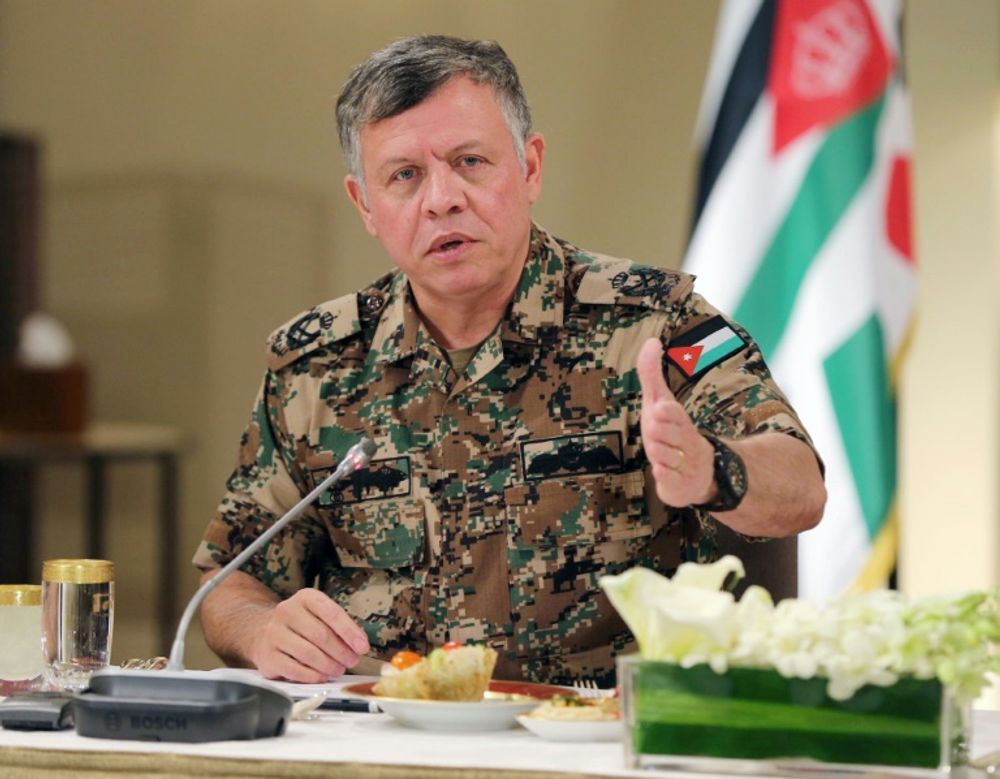“The American administration is angry at the Jordanian Foreign minister, Ayman Al-Safadi, because of his bellicose positions towards what is happening in Gaza!”. When you hear this from Washington, you must first ask yourself if it entails a distinction between Al-Safadi and King Abdallah II, especially that Al-Safadi’s loud voice is not louder than that of the wife of the Jordanian monarch, Queen Rania, in more than one television interview!
Indeed, we are facing a Jordanian turn that is taking the kingdom from its traditionally “moderate” position to a radical stance towards the Arab-Israeli conflict. It even reached the probability of “reconsidering the Wadi Araba Treaty”, as shown in some news from Amman. If this allusion is one of the elements of the Jordanian pressure on Tel Aviv, it was accompanied by other steps, such as the withdrawal of the Jordanian ambassador from Israel and freezing the Israeli gas supply agreement in exchange of supplying Tel Aviv with energy, which was supposed to be adopted under Emirati sponsorship.
If the popular protests in Jordanian cities against the Israeli massacres in Gaza erupted spontaneously, and witnessed some riots and attempts to storm the Israeli embassy, leading to hundreds of arrests, these detainees were released under direct orders from the Royal Court. This is one of the signs of the Jordanian turn.
Jordan feels targeted in the war on Gaza, just like the Palestinians. According to the kingdom, signs of being targeted include the “transfer” idea and the alternative country concept which came back to life in the Israeli conscience during its Likud periods. Revenge acts by settlers against the Palestinians happening these days in the West Bank are transforming Jordanian fears into concrete facts that will lead to Israel initiating practical steps toward the “alternative country”. It doesn’t stop here. In Amman, talk is going around about “documented” steps about an Israeli conception of the “transfer” paths. According to these circulating maps, designed by settlers according to many Jordanias, the inhabitants of Tulkarm for instance will have to move to the Ajloun town in Jordan (the land of their ancestors, as claimed on these maps). The inhabitants of Ramallah will be displaced to Amman, and those of Al Khalil (Hebron) will be displaced to the Al-Karak governorate in Jordan. These maps, even if they don’t constitute plans to be immediately executed, speak to a desire long held on the Israeli right and its settler extensions in the West Bank. But the more important takeaway is that these maps speak to Jordanian fears that have long been tested in wars. Jordan is the main refugee destination, and the idea to displace Palestinians there has already been tested. The kingdom also knows, better than anyone else, that this idea is still alive, especially in the conscience of the Israeli right.
A quote from Israeli Prime minister Benjamin Netanyahu comes to mind. “Palestinians are no longer a prerequisite to peace with Arabs”, he said before the war while “celebrating” normalization with Saudi Arabia. The quote means to Jordanians, as well as to Palestinians, the resumption of ambitions to oust Palestinians east of the Jordan river.
Jordan is seeing that the “alternative country” concept is now taking an unprecedented space in the Israeli conscience, with the “transfer” idea as a main pillar of this concept.
The war on Gaza falls at the center of this idea. Netanyahu’s success in executing it, even partially, means an enormous transformation in the kingdom’s social and political fabric. It is true that we are facing a “transfer” idea from Gaza to Egypt, but if it succeeds, it will be a model which will be quickly reproduced in the West Bank where this mission holds a priority in the mind of the Israeli right that far exceeds its importance in Gaza. In “Judea and Samaria”, the Palestinian cause is being killed. There is also where extremist settlers are being deployed, while the 2.5 million Palestinians living there are the block upon which liquidating the cause stumbles!
In Amman, these are not long held fears in sovereign circles in the kingdom, the King sees them as realities unfolding that need to be countered. The Jordanian government’s unprecedented involvement in the efforts to counter the war effects on Gaza is only one of the signs of the “Jordanian mission”.
Jordan hurried to send a field hospital to Rafah, and it happened while the kingdom deployed three similar hospitals in the West Bank. This shows that Amman sees the need for relief in the West Bank is as important as in Gaza.
What exacerbates Jordan’s realistic fears is that Washington is currently not showing any understanding toward them, despite the fact that Amman has always found Democrat administrations to be listening to its concerns more than Republican ones. State Secretary Antony Blinken’s remarks about the United States not allowing any “transfer” are not accompanied by any concrete measures to halt Israeli violence in Gaza and the West Bank. American pressure on Israel is currently limited to stop widening the war, especially to Lebanon.
Jordan has historically parted ways with its positions in similar turns, where internal concerns are prioritized over the kingdom’s traditional choices. During the first and second Gulf wars, it did so and paid prices it later absorbed. This time, the picture seems clearer, and Ayman Al-Safadi’s resounding voice in diplomatic corridors is only echoing fears coming from the Royal Court. This time the fears seem well founded.
